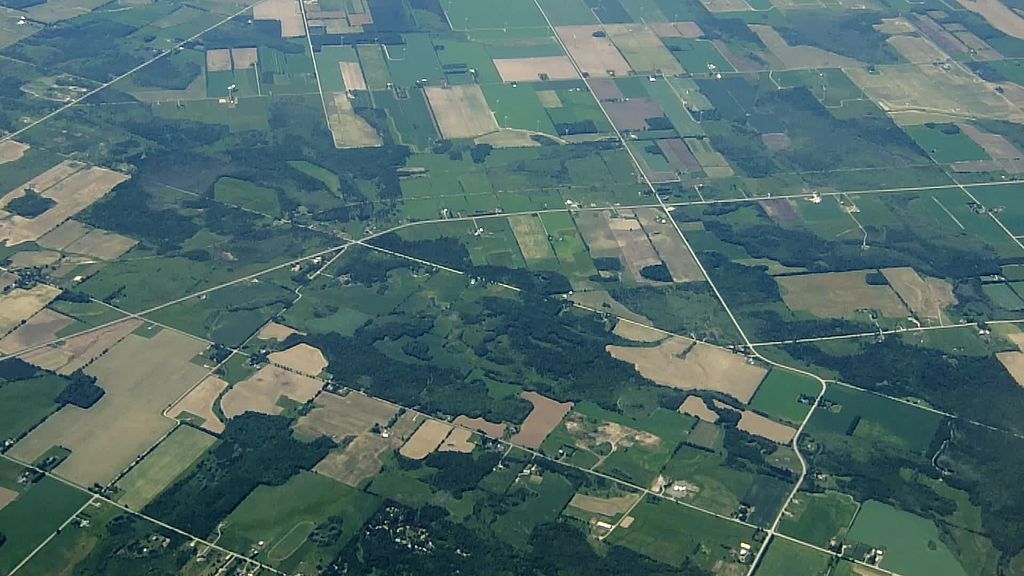May 4 2022 — Press release from Stop Sprawl Ontario
We call on the minister to repeal provisions in Bill 109 regarding referral of official plans to the Ontario Land Tribunal.
On April 14th 2022, Bill 109, the More Homes for Everyone Act hurriedly received royal assent a scant two weeks after it was introduced. Bill 109 formalized a provision that would allow the Minister to refer Official Plan amendments to the Ontario Land Tribunal (OLT) if the minister is not satisfied with the submission. This is an unacceptable shift from the long-standing process whereby provincial and municipal planning staff work collaboratively to achieve consensus on Official Plan submissions. Simply pitching submissions to an arbitrator that allows a single individual the authority to accept or deny official plans converts municipal planning to an adversarial process that will unnecessarily cost municipal taxpayers millions of dollars.
Official plans and local autonomy threatened
In November 2021, Hamilton City Council voted to accommodate all expected future growth within its current urban boundaries, rather than sprawling outward onto precious farmland, woods and wetlands because the mandated market-driven housing mix CAN be accommodated.
It is unacceptable, therefore, that Ontario Minister of Municipal Affairs and Housing Steve Clark stated in the legislature that Hamilton’s refusal to expand its urban boundaries was unacceptable to the Ford government, and that he was considering referral of the matter to the Ontario Land Tribunal (OLT) for a decision. Hamilton’s approved plan was in compliance with all provincial policies.
In February 2022, Halton Regional Council also directed their staff to prepare an official plan with no urban expansion for the next 20 years, recognizing they have enough vacant land within the current urban boundary to accommodate all mandated growth to 2041. Halton also elected to delay approving its plan for accommodating growth to 2051 until the province reveals its response to the Affordable Housing Task Force Report. Halton fully intends to be compliant with provincial legislation once the new rules are known.
Many other municipal councils are still completing their official plans. Will their deliberations be subject to the minister’s whims too?
Referral to the OLT: double jeopardy for councils and taxpayers
The threat of referral to the OLT, with its significant price tag, will surely influence decision-making as councils struggle with the cost of a potential OLT court case. Councils understand that there is always the threat of going to the OLT to defend their decisions from challenges from land speculators. But they should not have the province also threatening the same challenge. What in effect has happened is that the challenges expected from speculators will now be paid for by the people of Ontario via the province’s intervention.
It is an affront to democracy to reject the planning decisions made by elected councils, when they have followed provincial legislation and made their decisions following due process, consistent with local priorities.
Ontario’s Stop Sprawl Coalition calls on the Province of Ontario to repeal sections of Bill 109 that deal with referrals to the OLT.
We have a climate emergency: plan for it!
Ontario’s Stop Sprawl Coalition supports:
• Ending exclusionary zoning to allow for gentle density in existing neighbourhoods
• Growth through sustainable, more efficient use of land
• Ending sprawl as a means of accommodating new population
• Designing complete, walkable, transit-supportive mixed-use communities
• Saving farming, not just farmland
• Rethinking employment areas for efficiency of land use
• Protection of natural assets, including watersheds, water sources, sensitive lands and biodiversity
• Broad community consultation including Indigenous voices
The Places to Grow Act (PGA) was introduced in the Province of Ontario in 2005. This provincial legislation provided new guidance for how municipalities accommodate growth. It was introduced specifically to address the alarming loss of prime agricultural farmland in the Greater Golden Horseshoe (GGH) and the negative consequences of sprawl such as increased commute times, traffic congestion on provincial highways, loss of productivity, increased greenhouse gas emissions and the unsustainable increasing costs to the taxpayers for servicing sprawling growth.
The PGA for the first time forced all municipalities in the GGH to reduce their reliance on converting farmland to subdivisions and introduced mandatory intensification targets within built-up areas of the communities.
The Ford government updated the legislation in 2019 by walking back the intensification targets and by introducing a goal that would effectively require municipalities to approve more sprawl to accommodate growth. The key new requirement was to accommodate the future market for single family dwellings.
Since late last year, Stop Sprawl organizations have sprung up across the GGH in response to these changes which move the province in a backward direction. Municipalities have other priorities that will be thwarted if they simply comply by approving sprawl.
How we must grow during climate breakdown
Ontario’s remaining green spaces are precious. They mitigate climate change and provide future food security. We applaud municipal councils that have chosen to accommodate growth within their existing urban areas and are diligently working on policies that will increase the supply of single-family dwellings without an urban expansion. They have chosen to grow by focusing intensification along higher order transit corridors and in commercial nodes. They have chosen to provide more opportunities for affordable housing to be built near services. They have chosen to plan for growing vibrant walkable, less car-dependent neighbourhoods. They have chosen to grow in a more financially viable way in contrast to accepting the escalating cost of growth through continuing expansion of their urban boundaries.
Stop Sprawl Ontario supports sustainable growth that integrates responsible land management, more efficient use of land, and focuses on creating walkable, livable, healthy communities for all residents in harmony with nature.
Our call:
Repeal the provisions in Bill 109 that allow referral of Official Plans to the Ontario Land Tribunal
Stop Sprawl Durham: stopsprawldurham@gmail.com
Stop Sprawl Halton: stopsprawlhalton@gmail.com
Stop Sprawl Hamilton: info@ssho.ca
Stop Sprawl Orillia: greenorillia@gmail.com
Stop Sprawl Oro Medonte: savegreenoro@gmail.com
Stop Sprawl Oxford: StopSprawlOxford@gmail.com
Stop Sprawl Peel: stopthesprawlpeel@gmail.com
Stop Sprawl York: stopsprawlYR@gmail.com




